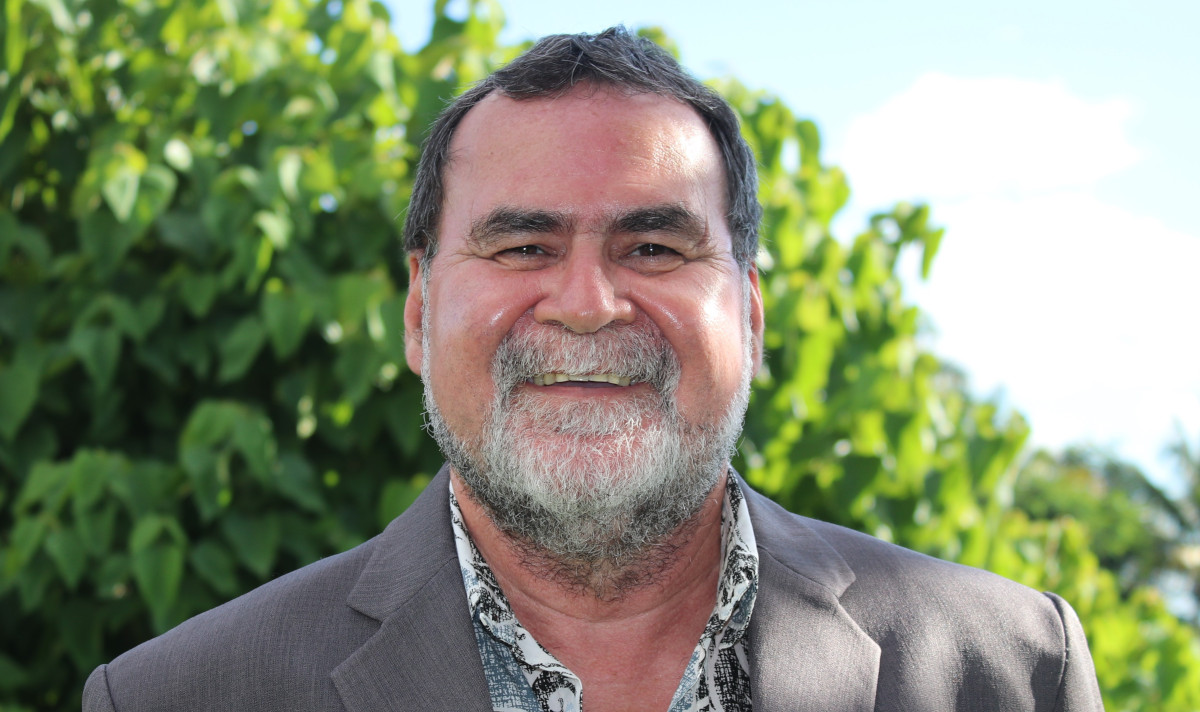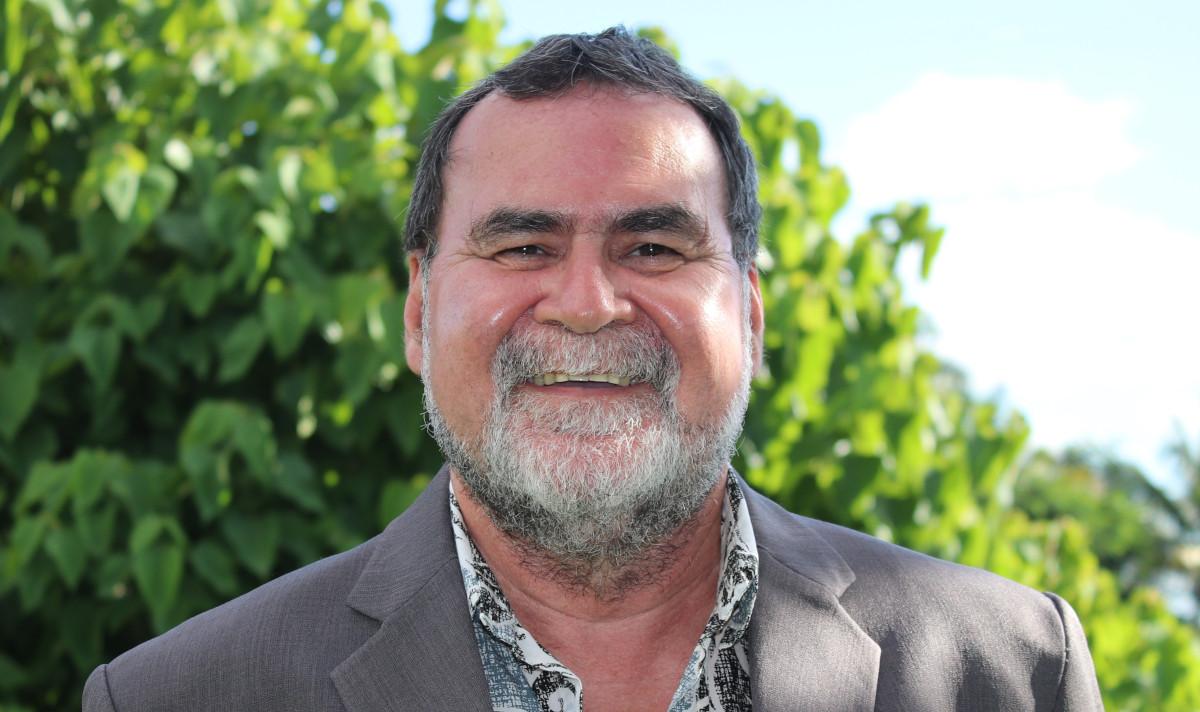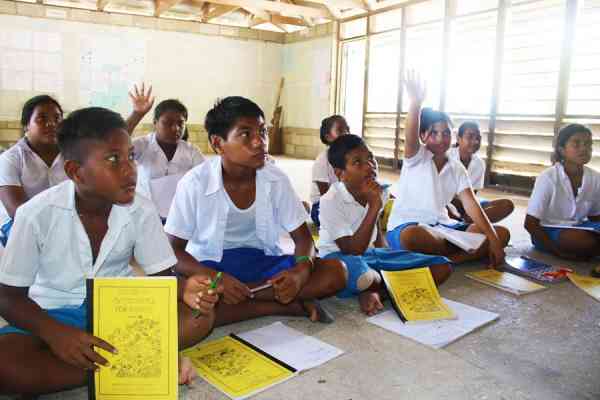Le magistrat Clarence Vui Nelson a toujours été passionné par la justice pour mineurs. Au début de sa carrière, il s’est aperçu que le pays ne disposait pas de prison réservée aux jeunes délinquants et que le grand public n’était globalement pas sensibilisé aux droits des jeunes et des enfants. C’est ce qui l’a poussé à défendre ces droits à l’échelon national. Aujourd’hui, le Samoa s’est doté d’une législation adaptée et d’un centre de réinsertion pour les jeunes délinquants.
(Article complet disponible en anglais uniquement)
84th Extraordinary Session of the Committee on the Rights of the Child
Profile Series: Acting Chief Justice Clarence Vui Nelson (Samoa)

Acting Chief Justice Clarence Vui Nelson has had a passion for juvenile justice for as long as he can remember. Early in his career, Justice Nelson noticed that the country did not have a separate prison for young offenders and there was a general lack of public awareness about young people and children’s rights. This fuelled the judge’s interest in promoting young people’s rights at a national level. Today, Samoa has legislation and a facility for rehabilitation of young offenders.
Explaining how he became a member of the Committee on the Rights of the Child in 2014, Justice Nelson said “UNICEF is a key partner organisation of the Committee. It was UNICEF that suggested I put my name forward for the Committee and the government picked up the idea and then it went from there. It was not something I intended to do, it’s just something that happened because of the things I was passionate about and the things that I was pursuing and that’s how I ended up there.”
States parties to human rights treaties generally elect treaty body members at meetings of States parties, which are usually held every two years at UN Headquarters in New York. States parties give due consideration to equitable geographical distribution, the representation of the different forms of civilization and the principal legal systems, balanced gender representation and the participation of experts with disabilities in the membership of the treaty bodies.
Justice Nelson is now a member of the Committee on the Rights of the Child and the only Pacific Islander to ever sit on any of the UN treaty bodies.
The Committee on the Rights of the Child is the body of 18 Independent experts that monitors implementation of the Convention on the Rights of the Child by its State parties. All Pacific Islands Countries (PICs) have signed and ratified CRC which means that all PICs are obliged to submit regular reports to the Committee on how the Convention is being implemented. The Committee examines each report and addresses its concerns and recommendations to the State party in the form of “concluding observations”.
Next week, Samoa will host the 84th (Extraordinary) session of the Committee. This is a historic occasion, being the first time a UN human rights treaty body will formally meet outside its Geneva and New York headquarters.
At the 84th session, scheduled for 2- 6 March 2020 in Apia, representatives from the Cook Islands, the Federated States of Micronesia and Tuvalu will discuss with the Committee how they are protecting, promoting and further improving the rights of children under the Convention on the Rights of the Child. A range of side events will examine child rights issues within the Pacific context, including the impacts of climate change and the right to health.
According to Justice Nelson, the format and structure of the meeting will be the same as the sessions held in Geneva and New York, including the holding of side events during the lunch breaks and in parallel to the substantive sessions of the Committee.
“… the Committee will be extremely busy during the 84th session because we will make maximum use of the Committee being in Samoa to engage with as many children and people as possible, so that it hears and experiences first-hand and better understands the range of issues concerning children in the Pacific and the challenges which Pacific Island Countries may be facing in implementing the Convention on the Rights of the Child.”
Turning to current events, Justice Nelson hopes to bring to light the challenges children and the Pacific face when a natural disaster strikes a Pacific country. Natural disasters have increased in frequency and intensity in the past decade and are widely affecting basic rights of people and children such as access to food and clean water, education and health.
“So the first thing that comes to mind is the climate situation and the impact on environment and, as we all know, in the Pacific this is a life or death issue and it’s a life and death issue for the children too because this is the world we are leaving to them.”
The 84th session has a number of advantages both for the CRC committee and for the Pacific as a whole.
“I think the first big advantage is that it provides the committee members with actual experience, a hands-on experience to them to coming into Samoa. Some committee members will also be going to other countries in the Pacific. So it’s not just only Samoa, they will talk to the people, they will see the conditions and I think it will equip them to make better decisions, because then they will appreciate some of the things the delegations talk about when they come to report to us in Geneva,” Justice Nelson explains.
Article 12 of the Convention on the Rights of the Child provides: “States Parties shall assure to the child who is capable of forming his or her own views the right to express those views freely in all matters affecting the child, the views of the child being given due weight in accordance with the age and maturity of the child.” As such the Committee goes to great lengths to ensure the views of children are heard throughout any of their sessions and that they play a meaningful role in the discussions and outcomes.
Justice Nelson supports this strategy as it “allows the committee to engage in that personal dialogue with children which I think is very important, certainly for us. We recognise the value of doing it, because I tell you, I have heard some very amazing things from children from different parts of the world, and you sit back and you go ‘jee’ I have learned something today, I never thought of it that way. It’s an educational process. So I think from that aspect too it will be a very very important exercise.”
The 84th session in Samoa will also be an opportune moment to encourage other Pacific Islanders to put themselves forwarded or be nominated by their Government to sit on one of the ten committees. The current lack of representation, according to Nelson, is a gap that Pacific governments should fill by identifying potential representatives and lobbying for their consideration.
The value in doing so, Justice Nelson believes, lies in the fact the Pacific has a unique set of expertise that it could bring to the table at UN because “where ever in the Pacific you go culture plays a huge part in all our lives and all our environment and so we have a very good understanding on children’s rights and culture and the issues it brings out - that’s an expertise we could bring to the table,” Justice Nelson explains.
Being able to represent Samoa and the Pacific region as a whole is an honour for Justice Nelson and he is calling for more leaders from the Blue Pacific to emerge and take up decision making roles at the highest level possible.

